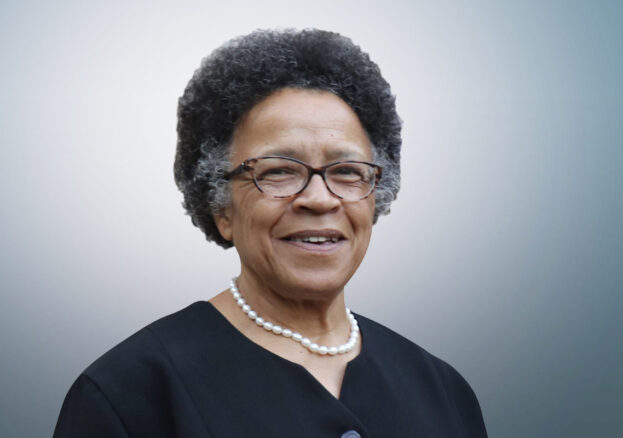
Dame Linda Dobbs, born in Sierra Leone in 1951, stands as a pioneering legal figure in the UK. She made history by becoming the first non-white person to be appointed to the senior judiciary of England and Wales. Her extensive legal career and impactful contributions to law and justice have established her as a prominent figure in the British legal system.
Early Life and Education
Dame Linda Penelope Dobbs spent her early years in Sierra Leone before moving to the United Kingdom. She pursued her education in law, graduating from the London School of Economics and Political Science (LSE) with a degree in Law. Her academic journey equipped her with profound insights and knowledge, laying the foundation for her illustrious legal career.
Career and Achievements
Dame Linda Dobbs was called to the Bar in 1981 and rapidly gained recognition for her legal acumen, specialising in criminal and regulatory law. In 2004, she made history by becoming the first non-white High Court Judge in the United Kingdom, marking a pivotal moment in the history of the British judiciary. Throughout her career, Dame Linda has been involved in numerous high-profile cases, earning respect for her fairness, integrity, and sharp legal intellect.
Advocacy for Diversity
She has also been a staunch advocate for diversity and inclusion within the legal profession, actively participating in initiatives aimed at promoting equality and diversity in the judiciary. Her leadership and active participation in various committees and initiatives have been instrumental in propelling discourse and action regarding diversity and representation within the legal community.
Honours and Recognition
In recognition of her outstanding contributions to the legal field, Dame Linda Dobbs was appointed Dame Commander of the Order of the British Empire (DBE) in 2003. Her numerous accolades and awards attest to her enduring impact and exemplary service in the pursuit of justice.
Later Career and Legacy
Dame Linda’s later career and retirement did not signal an end to her influence in the legal community. She extended her commitment to justice and advocacy for diversity into various roles, sharing her expertise, and contributing to strategic frameworks and reforms aimed at enhancing fairness and accessibility within the legal system.
Impact on Diversity and Legal Reforms
She played a pivotal role in pioneering legal reforms and policies, ensuring not only a legacy of notable case judgements but also of systemic change. Her work in promoting reforms and scrutinizing legal practices has facilitated a progressive shift towards more inclusive and equitable legal processes.
Mentorship and Advocacy
Beyond policy and practice, Dame Linda actively engaged in mentoring aspiring legal professionals and has spoken on various international platforms, further solidifying her status as a global advocate for justice, equity, and diversity in the legal profession.
Post-Judiciary Endeavours
Post-retirement, Dame Linda continues to influence the legal community through her roles as a speaker, author, and consultant, providing insights and contributing to policy-making and organisational strategies in various institutions and legal bodies globally.
Celebrating Dame Linda Dobbs
Celebrating Dame Linda Dobbs during Black History Month is a tribute to her groundbreaking achievements and enduring commitment to justice, equality, and diversity. She serves as an inspirational figure, illustrating the significance of representation and diversity in the legal system. Her pioneering role and continuous advocacy for inclusivity and fairness in the judiciary have paved the way for future generations of diverse legal professionals.
A Lasting Legacy
Dame Linda Dobbs’ remarkable career and contributions to the British legal system epitomise the principles of justice, equality, and integrity. Her historic appointment and enduring advocacy for diversity within the judiciary underscore the importance of inclusive representation in shaping a fair and equitable legal system. Her legacy transcends her own achievements, fostering an environment that promises the possibility of change and progress towards a more equitable future in the legal profession and beyond.
Her life and work continue to inspire and motivate those striving for excellence, diversity, and justice in the legal profession and provide a roadmap for future endeavours in enhancing representation and equity within the judiciary.
